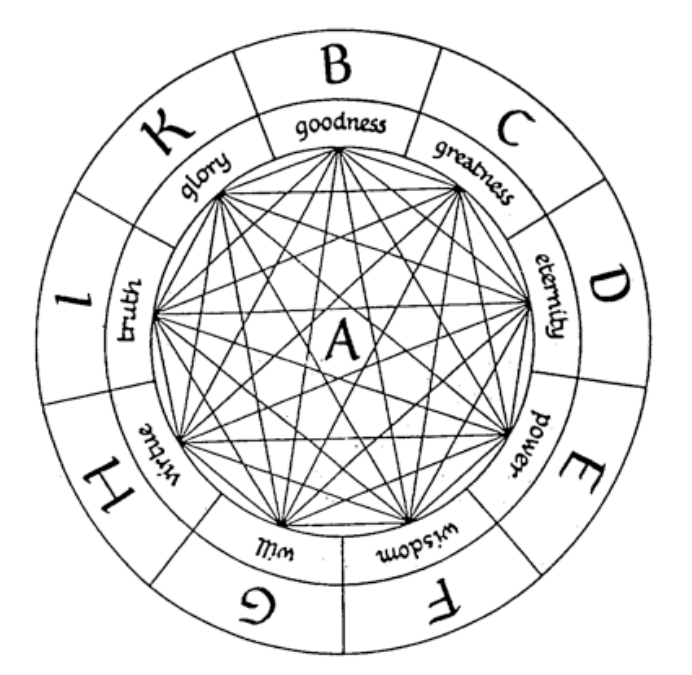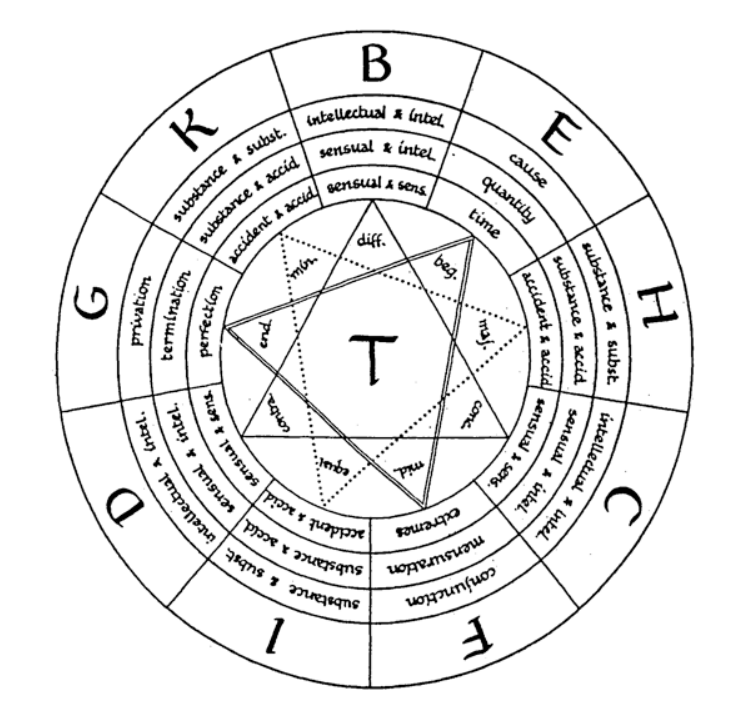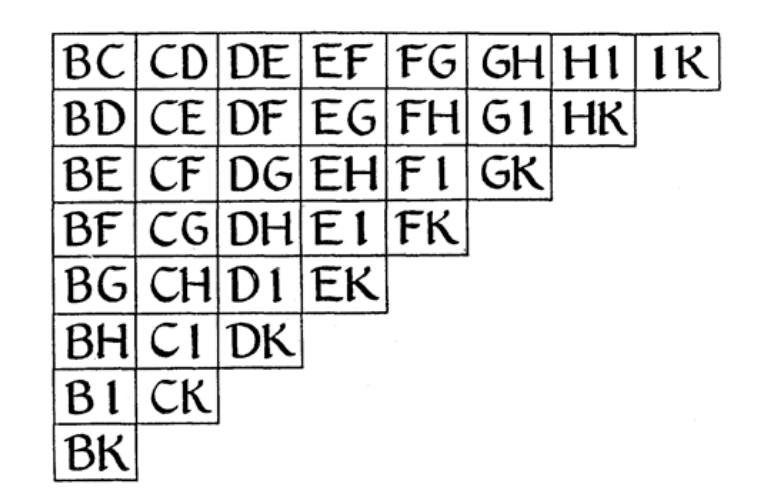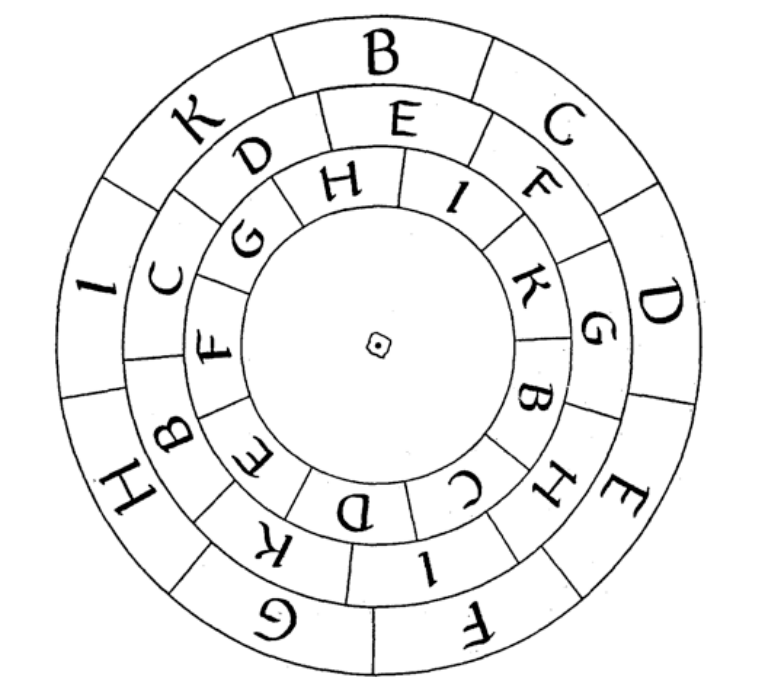1190 - zā’irja
theme: all_combinations
theme: all_combinations
1666 - Dissertatio De Arte Combinatoria
theme: all_combinations
theme: all_combinations
Ars magna
1308

Figure A
(Bonner, 2011)
Figure T
(Bonner, 2011)
Third figure
(Bonner, 2011)
Fourth Figure
(Bonner, 2011)The theological idea behind Llull’s system is that the nine attributes should be universally valid across all cultures and religions, so that the Ars, by providing an objective, formal system for creating statements from these universal truths, could prove the single truth of Christian religion and be used as a missionary device.
(Cramer, 2005, p.37)| Fig. A | Fig. T | Questions | Subjects | Virtues | Vices | |
|---|---|---|---|---|---|---|
| B | goodness | difference | whether? | God | justice | avarice |
| C | greatness | concordance | what? | angel | prudence | gluttony |
| D | eternity | contrarierty | of what? | heaven | fortitude | lust |
| E | power | beginning | why? | man | temperance | pride |
| F | wisdom | middle | how much? | imaginative | faith | accidie |
| G | will | end | of what kind? | sensitive | hope | envy |
| H | virtue | majority | when? | vegetative | charity | ire |
| I | truth | equality | where? | elementative | patience | lying |
| K | glory | minority | how? | instrumentative | pity | inconstancy |
Bonner, A. (2011) ‘What was Llull up to?’, in Fidora, A. and Sierra, C. (eds) Ramon Llull: From the Ars Magna to Artificial Intelligence. Barcelona, Spain: Artificial Intelligence Research Institute.
Cramer, F. (2005) Words Made Flesh. Rotterdam: Piet Zwart Institute. Available at: [link]
1190 - zā’irja
theme: all_combinations
theme: all_combinations
1666 - Dissertatio De Arte Combinatoria
theme: all_combinations
theme: all_combinations